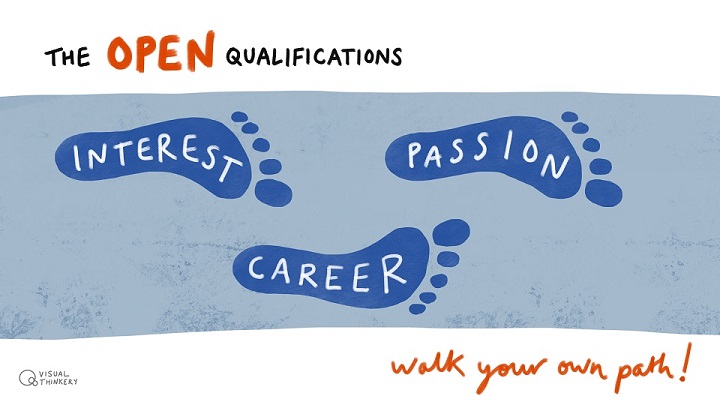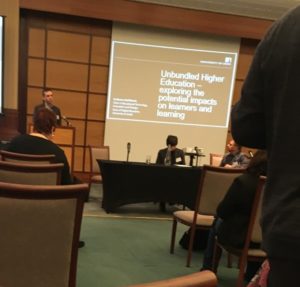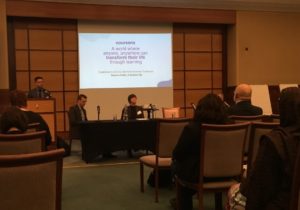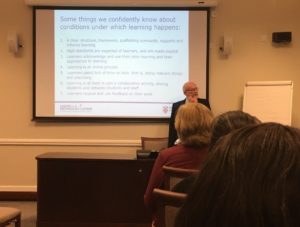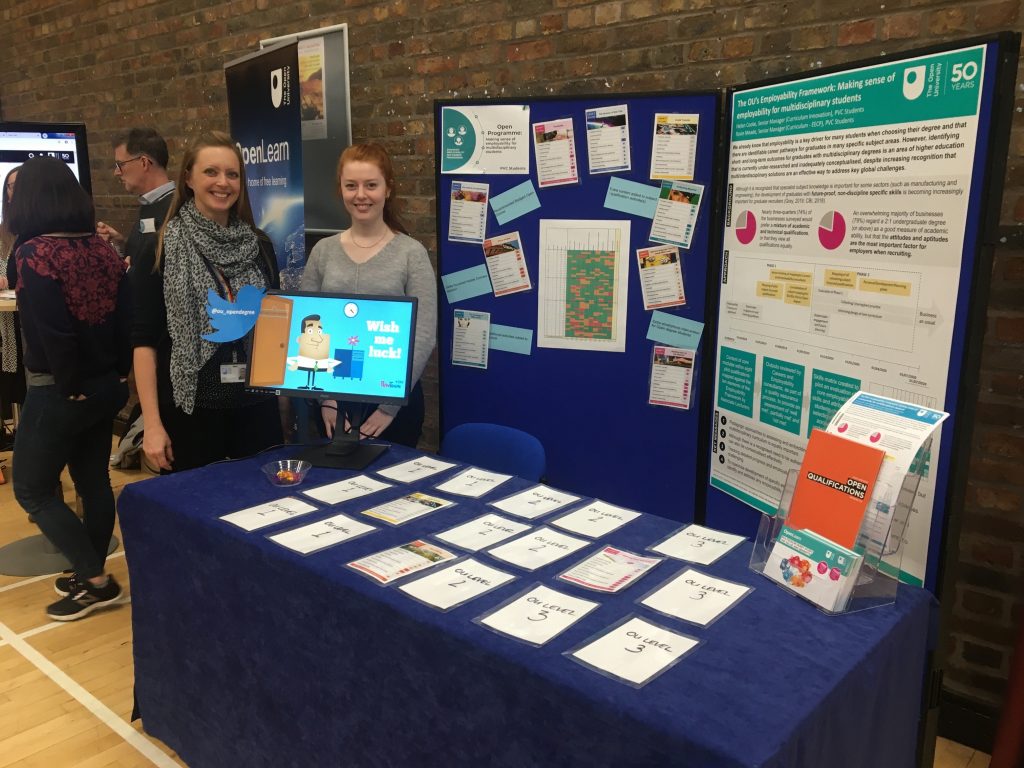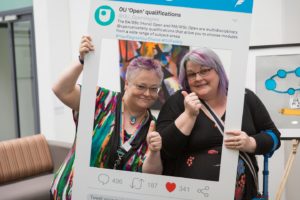
Cath Brown is President of the Open University Students Association and has been a BSc Open degree student herself (choosing mainly physics, engineering and history modules). We loved the ‘lightning talk’ that Cath gave at a recent OU Curriculum Strategy event so much, that we asked her to write it up in a blog post for us… And here it is!
Developing and modifying curriculum is all about students, isn’t it?
Typically, the planned curriculum is inhabited by a range of virtual students, with well-defined motivations and behaviours. They want a degree in X, a career in Y, to develop their skills in Z, and intend to study at this, that or the other intensity. These well-behaved and orderly creatures are ready to study as directed and want a straightforward path and clear directions given – they rarely come with anything as inconvenient as pre-formed views, likes or passions.
But in truth, we real students are much more complex beasts. For most of us, it’s not either career or interest, whatever our age – it’s a mixture of the two and that can evolve over time.
We do tend to have tastes and preferences. That means we want choice – it gives us more feeling of control and it increases motivation, and hence improves our retention and success. Of course, choice can be messy and costly, and we know it means a greater investment in advice and guidance. And yes, there are some who do want a straightforward path without having to make lots of decisions. So, by all means offer those who want one a set menu, but let the rest of us dine à la carte.
The ultimate international buffet, of course, is the OU’s ‘jewel in the crown’, the BA/BSc (Hons) Open degree – its status as the most popular OU undergraduate degree demonstrates clearly how highly choice is prized by OU students. But even those who want to study a named degree will still appreciate opportunities to specialise as they progress; to mix the culinary metaphor – even if you need us to eat up our greens at the start of our journey, at least give us a choice of desserts to look forward to as we progress.
Choice doesn’t only mean subject – it means size of study unit too. Just because increasing numbers of us want to do 120 credits a year doesn’t mean that those who’d like to do 30 credits, or just 10 credits, don’t exist. Large units of study don’t let us flex things, they don’t let us mix and match – or in more trendy terminology, smaller units enable us to personalise our curriculum.
So, where it’s possible, why not design it so that things work well together, or separated? I think coffee and cake go well together, but coffee on its own, or cake on its own, are just the thing sometimes. OK, some things can’t be broken down too far – I don’t want to eat the eggs, flour and so on in my cake separately. But let’s start from the premise of smaller units of study with larger when necessary, not vice versa. Smaller units may cost, but that sort of flexibility could pay dividends.
Timings are also a part of choice and flexibility. Yes, some may like the conventional academic year; but for others that timing is a menace. And we know statistically that those doing full-on concurrent study fare less well than those with partial or no overlap – smaller units of curriculum could give more flexibility here too.
It could also really impact retention too. It’s established that it’s harder to get us students back on board if we defer. But it’s also well-known that we have complex lives which may mean sometimes we can’t spare 18 hours a week. Letting us jettison part of our programme rather than all of it could keep us in the system and help us succeed.
I wouldn’t be doing the student body justice if I didn’t share what’s a big anxiety for many of us. So many OU students, and prospective students, are really concerned how their degree will stand up compared to conventional universities. We care about quality. We care about reputation. We care about what is in the modules we study – we want it to be the good stuff, not anything we perceive as “filler”. And while we obviously want to get good marks if we can, that doesn’t mean we like or respect things that are easy marks. We reserve the right to moan and whinge about things being hard, but we want to know we deserve our degrees. We want you to remember the words of our founder, Jennie Lee – “Nothing but the best is good enough”.
So – what is the message from the student body?
Design for Choice. Design for Flexibility. But never ever compromise the Quality.
You can find out more about Cath and her role on the Students Association website.

